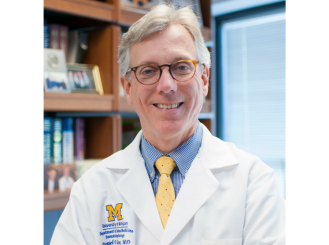Mar 04, 2019
By Alex Carolan, ASCO Publishing
The Journal of Clinical Oncology’s (JCO) “Cancer Stories: The Art of Oncology” podcast has expanded to include interviews with oncology pioneers. ASCO past president Daniel F. Hayes, MD, FACP, FASCO, hosts the podcast with oncologists including Harvard Joint Center for Radiation Therapy founder Samuel Hellman, MD, FASCO; breakthrough Hodgkin’s lymphoma researcher Saul A. Rosenberg, MD, FASCO; and others who facilitated early, significant advances in oncology.
In the following interview, Dr. Hayes discusses the persistence, passion, and medical breakthroughs these founders contributed to the field.
How would you define an oncology founder?
DH: People I consider pioneers. The men who put two drugs together and started combination chemotherapy to see if we could cure childhood leukemia: Dr. James Holland, Dr. Emil Frei III, and Dr. Emil J. Freireich. I also enlisted others of that generation, and the generation that followed them, many of whom showed we could use combination chemotherapy to cure other cancers.
How did you come up with the idea for a podcast featuring oncology founders?
DH: Just as I was being elected ASCO president, I suddenly lost hearing in my left ear. In February 2018, I had a cochlear implant where my physical therapy was to listen to podcasts. I listened to every ASCO podcast, and it occurred to me it would be really great to get the folks who were there at the start of oncology on digital.
My approach to this is that if I were in a cab for 30 minutes with oncology founders, what would I ask them? Or what would any one of us ask them?
Have you noticed any recurring themes or trends in the episodes?
DH: How courageous these physicians were. For the most part, they were considered nuts by their colleagues, and often their patients, because therapy was so toxic. They had to be persistent and believe in what they were doing.
I trained at Dana-Farber Cancer Institute (then “Sidney Farber”), with Dr. Frei. I wish he were still alive, because he taught us about what he had to do to accomplish what he did. He often told us that the cancer should be cured first, and if so we can figure out how to take care of toxicities later. Cancer was such an untreatable disease, and those are the kind of stories I want to hear about—what they had to do to treat people.
How can examining oncology’s past help inform the future of cancer care?
DH: Winston Churchill told the House of Commons in 1948, “Those who fail to learn from history are condemned to repeat it.” Even if you don’t care about the history, it’s important for us to realize what happened in the past, and the obstacles people overcame. Don’t reinvent the wheel, but rather build on what people before us did.
I’m hoping these podcasts will be of value to the younger generation. We don’t teach history very well in our training programs because, thankfully, there is so much oncology to learn, but I hope these podcasts will bring our past to the present. We all work on the shoulders of giants.
Listen to “Conversations With the Pioneers of Oncology” episodes.

